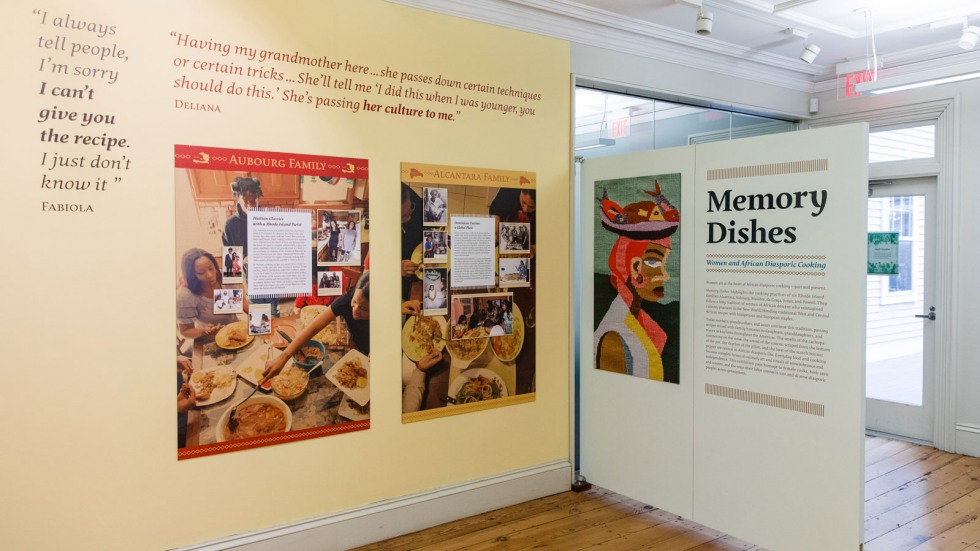PROVIDENCE, R.I. [Brown University] — An exhibit on display through October at Brown University’s Center for the Study of Slavery and Justice (CSSJ) examines the unique ways in which food traditions evolve when families from Africa, the Caribbean and Latin America immigrate to the United States.
Memory Dishes, curated by recent master’s graduate Johanna Obenda, highlights the cooking practices of six Providence families of African descent. Videos, photos and personal stories document the families’ culinary traditions, many of which changed as they moved to the New World and began to reimagine traditional West and Central African recipes by using European and indigenous ingredients.
“Cooking can seem very quotidian, because we have to do it in order to feed ourselves every day,” said Obenda, who received a master’s degree in public humanities from Brown in May. “But there’s a lot of meaning in the things we cook, the way these recipes are passed down and the way they change through migration. Through food, there’s so much we can learn about labor, gender and memory.”
As Obenda followed the six local families and observed their cooking practices, she discovered just how closely food and family history are intertwined. Today, these families’ women, among them mothers, grandmothers and aunts, continue a generations-long tradition of passing down old family recipes, usually sharing stories of their ancestors in the process. Female family members shared with Obenda that the smells of traditional food simmering on the stove – whether it was slow-cooked Cape Verdean cachupa stew or the crispy Dominican rice dish concón – elicited specific emotions and memories.
“Something I learned while speaking with each of the families is the historical significance of women in many African diaspora cultures,” Obenda said. “They’re not only the cooks but also the keepers of those cooking traditions. Those traditions are either passed down or they’re lost, and there’s a lot of power in that.”
Along with photos and stories from each of the six families, the exhibit features a short documentary film, an outdoor herb garden, a display of traditional African pantry staples, and a guestbook featuring food-related memories from international visitors to Brown.
The exhibition is on display at the CSSJ through Oct. 31. The CSSJ gallery, located at 94 Waterman St., is open Monday through Friday from 9 a.m. to 3 p.m. Admission is free.
